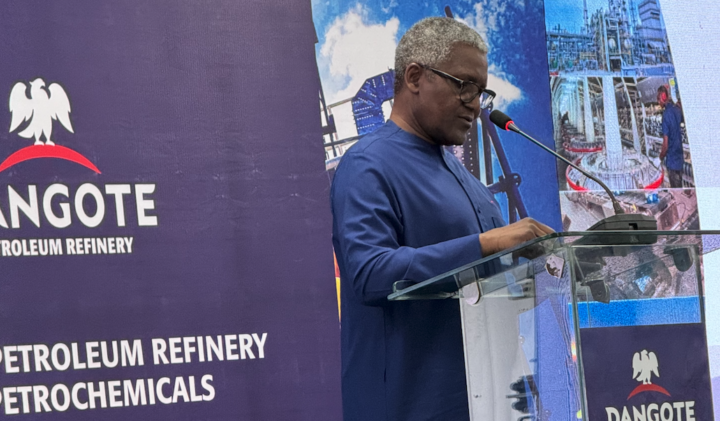
The Nigeria Extractive Industries Transparency Initiative (NEITI),says Nigeria earned N79.96bn from the solid minerals sector in 2019.
The figure which represents accruals to the Federation and other subnational entities shows a 15% increase when compared to the N69.47Bn recorded in 2018.
Head, Communications and Advocacy,NEITI,Obiageli Onuorah, noted that the data are contained in the 2019 audit report of the solid minerals sector released by the Nigeria Extractive Industries Transparency Initiative (NEITI) in Abuja.
According to her, the 2019 earnings accounted for 16% of the total revenues of N496.28billion that have accrued to the Federation from the sector over the period of 13 years (2007 to 2019) and is also the highest since 2007 when NEITI commenced reconciliation of payments in the solid minerals sector.
A breakdown of the 2019 receipts as reported by NEITI showed that taxes to the Federal Inland Revenue Service (FIRS) on behalf of the federation accounted for N69,92 billion or 87.4% of the total while fees and royalties paid to the Mining Cadastre Office (MCO) and Mines Inspectorate Department (MID) accounted for N2.37 billion (3.0%) and N2,55billion (3.2%) respectively. Also revenue accruals to the States stood at N5.1bn, representing a 42% increase when compared to the N2.1bn recorded in 2018. The Federal Inland Revenue Services (FIRS) accounted for the highest flow to the coffers.
The NEITI report also disclosed that the outstanding amount of ₦8.887bn which accrued from the solid minerals sector as at 31st December 2019 was distributed amongst the three tiers of government in May 2020 using the revenue sharing formula. The balance as at 31st October 2020 was N3.948bn.
A breakdown of the distribution shows that the Federal and State governments received N4.073billion or 45.83% and N2.065billion or 23.25% respectively. Besides, local governments received N1.592billion or 17.92%, while the balance of N1.155billion was distributed to only solid minerals producing states as their shares of the 13% derivation.
According to the report, out of seven hundred and two (702) companies that paid royalties to the government in 2019, only seventy-four (74) companies met the materiality threshold of ₦3million. This represent a 7.2% increase when compared to 69 entities that met materiality threshold in 2018.
“These 74 companies accounted for 87.63% of total royalties of N2.50bn paid in 2019, with the top 5 companies (Dangote Cement PLC; Lafarge PLC; Dangote Industries; Julius Berger; and Reynolds Construction) paying more than 50% of total royalties” the report stated.
The report also disclosed that a total of 1,296 mineral permits were issued by the Mining Cadastre Office (MCO) in 2019. Breakdown showed that Small Scale Mining Leases were the highest with 602 permits granted. This was followed by 501 and 169 for Exploration Licenses and Quarry Leases respectively, while the least figure of 24 was recorded for Mining Leases.
The 2019 audit report revealed that the total volume of minerals produced was 59.82mt. A five year trend analysis of minerals productions shows that the total minerals production in the past five years stood at 224,188,056 tons out of which 59.82mt was produced in 2019, signifying the highest in the five years reviewed. The 2019 volumetric figures also represents an increase of 29.41% when compared to 46.7mt produced in 2018, closely followed by 43.08mt and 39.27mt produced in 2016 and 2015 respectively, with lowest production figure of 35.32mt recorded in 2017.
An analysis of revenues flows from the sector also showed that the sum of N79.96 billion recorded in 2019 was the highest in the past five years. This was followed by N69.47bn and N69.2billion recorded in 2018 and 2015 respectively. Besides, N52.76bn was recorded in 2017 while the sector accounted for N41.98bn in 2016.
On minerals exported, the report showed that the solid minerals sector accounted for N124.23 billion of the total government exports of N24.275 trillion for 2019, representing 0.51% of total export for the year.
On the contribution of the sector to the economy, NEITI’s report cited data from the National Bureau of Statistics (NBS) which stated that mining and quarrying contributed 0.26% to GDP, higher than 0.18% contribution recorded in 2018. “Nigeria’s GDP in 2019 was ₦144.210trillion with contributions from the solid minerals sector totaling ₦368.99billion, representing 0.26% of the total amount”. This shows a steady growth in the sector’s contribution to the economy in the past five years, from a contribution of 0.12% in 2015 to 0.26% in 2019.
A sectoral review of revenue distribution of taxes and royalties by the 74 companies shows that manufacturing and construction companies contributed 68.60% and 29.67% respectively in royalty and taxes while quarry, mining companies and buying centres contributed only 1.73%.
On environmental impact and social expenditure, the report disclosed that ten (10) companies reported environmental expenditures to the tune of N17.13million. The expenditure covers environmental fees, air quality and waste permits, and registration fees for environmental impact assessment (EIA).
Besides, the report disclosed that Mines Environmental Compliance Department carried out reclamation of seven (7) abandoned mines costing N534.81million. It also noted that a total of 32 mining sites have so far been reclaimed from 2007 to 2019 costing N2.39billion.
On social expenditure, the report revealed that the sum of N2.598 billion was spent on 557 projects by 44 extractive companies.















